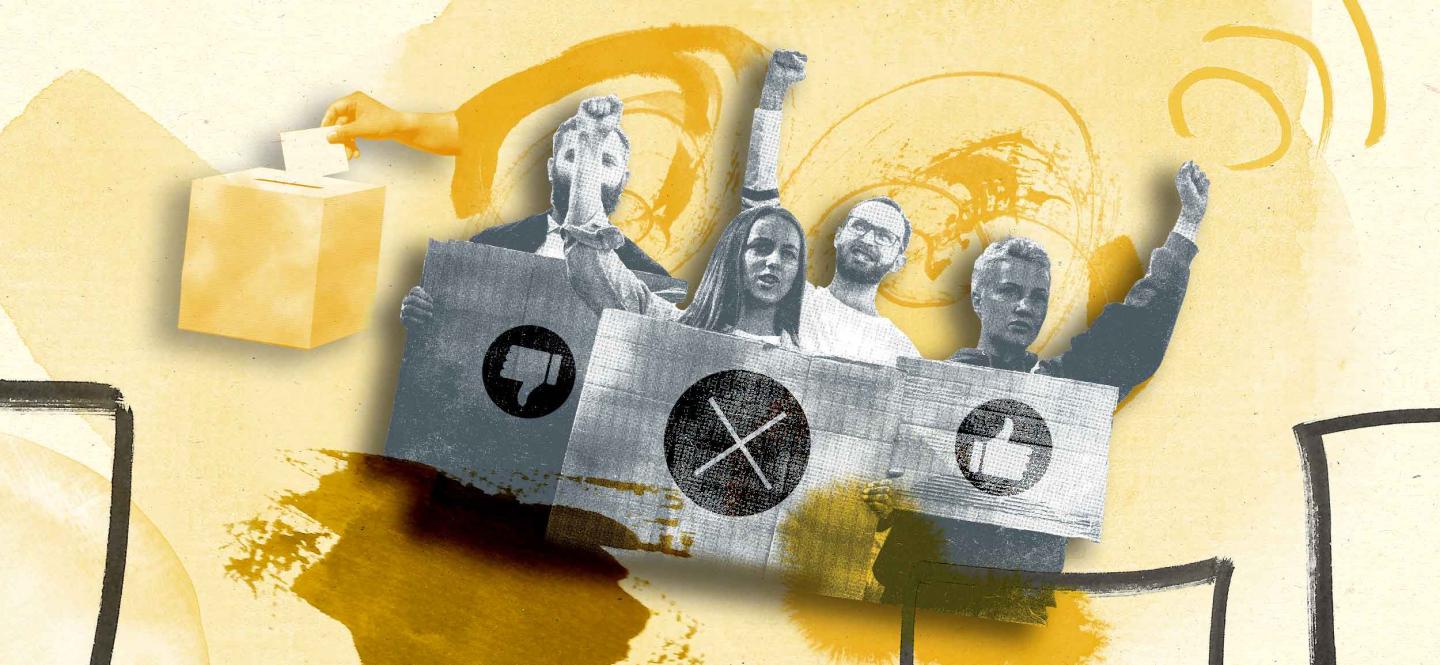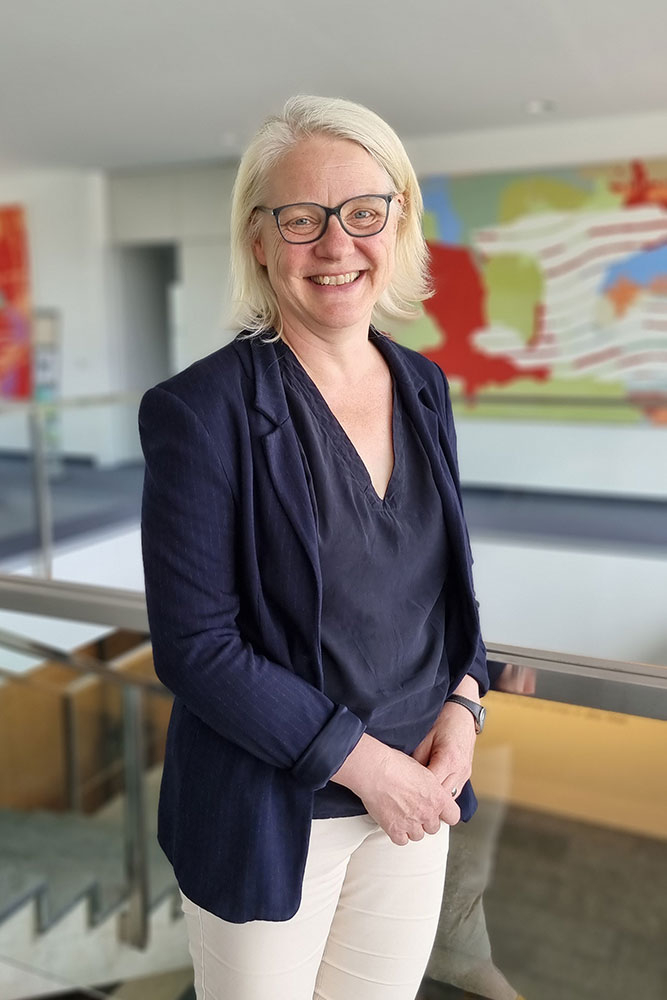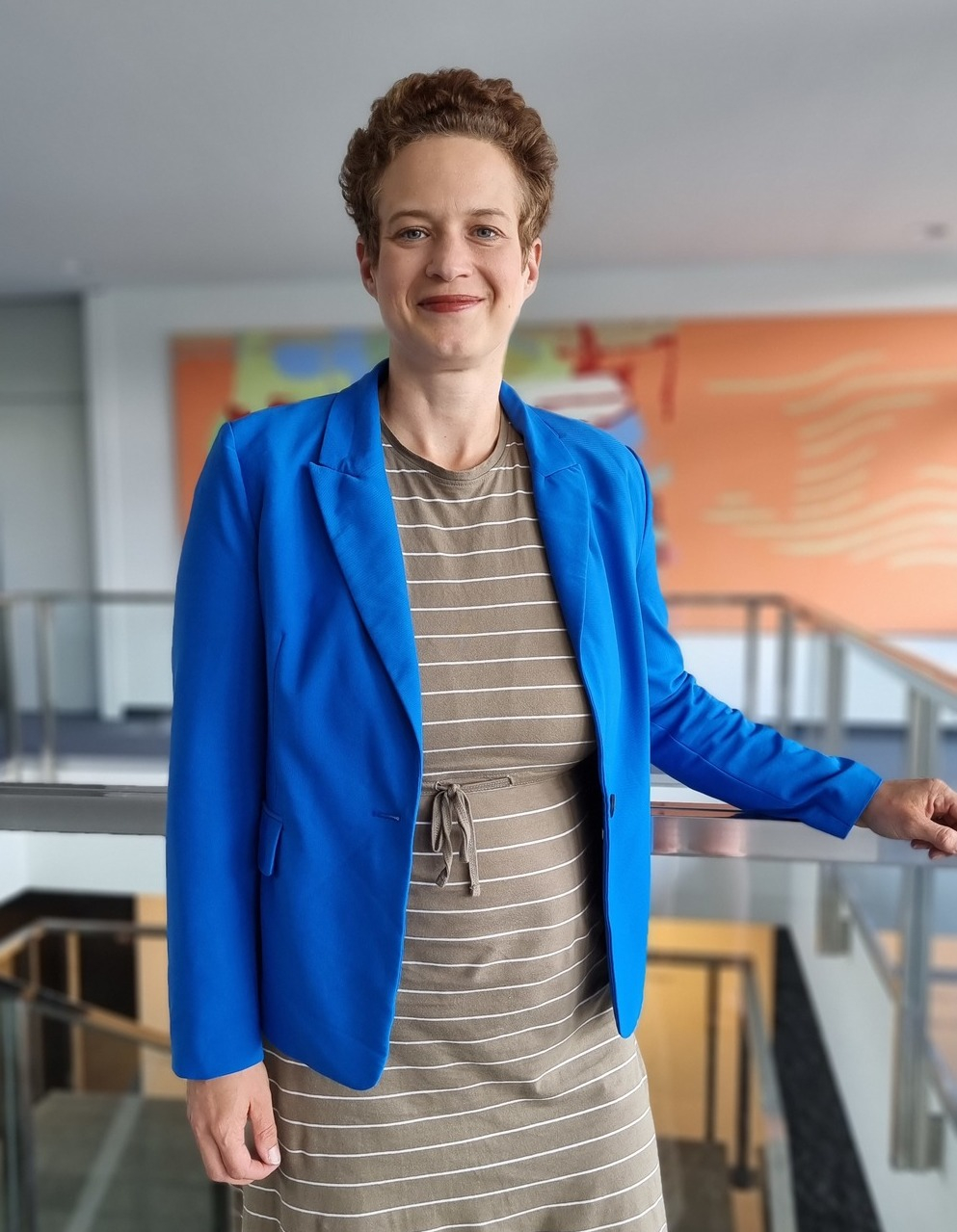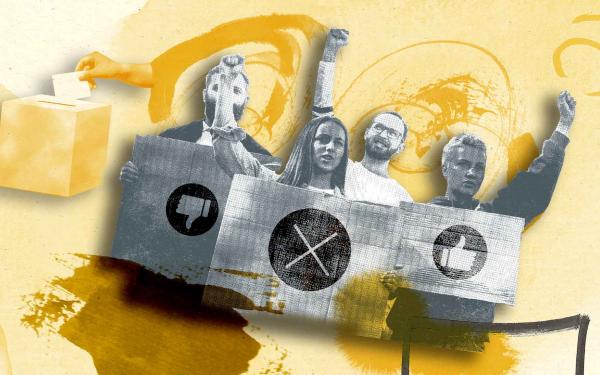
VolkswagenStiftung
New funding offer: Democracies under change
In a two-part funding offer, the Foundation is looking for transdisciplinary project teams to draw up recommendations on how democracies must develop in order to master the multiplicity of societal challenges. Application deadline for 'task forces': Sept. 19, 2023
Democracies around the world are coming increasingly under pressure. And Germany is no exception. Whether the topic is migration, climate change or the energy transition – there appears to be no end of subjects causing heated debate. And for the governed to criticize both those who govern and the political system. On the other hand, more and more groups of actors are coming forward in defense of democracy. Different perspectives are being developed within and outside academia on how democracies can become more resilient. However, the proponents of different perspectives on transformation processes seldom seek dialog with each other. For the most part, academic and non-academic discourses take place separately from one another.
The Volkswagen Foundation wants to change this with a new funding initiative. It is aimed primarily at applicants from the humanities, cultural studies, and the social sciences – but at the same time also at actors from outside of academia. Working together in transdisciplinary teams they will generate knowledge about democracies in transition.
Adelheid Wessler, team leader "Societal Transformations" and Cora Schaffert-Ziegenbalg, the program manager, answer questions about the new funding offer.
We might be building a whole new research community here!
You participated in the networking workshop at Herrenhausen Palace in Hanover at the end of June. What was it about?
Wessler: Internally, we often refer to such networking meetings as "marriage markets". That describes the goal rather well: The Foundation offers a space where people willing to cooperate in collaborative projects can get to know each other. Sometimes, project partners are found at these meetings, who later submit a joint application. Apart from this aspect, there is in any case lots of information and inspiration about which topics are eligible for funding.
Schaffert-Ziegenbalg: We had a three-day discussion and exchange of ideas with about 40 people. The academic world was represented by classical political systems research, as well as sociology and political education. Among the participants outside of academia, there was a focus on "democracy and migration", but also on "democracy and education". The application for the workshop addressed interested parties with very different perspectives on democracy, independent of subject-specific expertise.

Adelheid Wessler heads the "Societal Transformations" team.
The new funding offer is expressly for transdisciplinary teams: Project applications can only be submitted jointly by researchers and partners from outside academia. How was this reflected in the workshop?
Schaffert-Ziegenbalg: Participants from both camps came with fixed agendas and understandings of their roles. Researchers, for example, said we deliver the scientific findings and the non-academicians can then distribute them through their channels to various audiences. The researchers were initially somewhat irritated by the fact that they were cooperating on an equal footing right from the start. The non-academicians, in turn, were concerned that they would not be accepted as equal partners in the research process.
Wessler: Cultural differences also became apparent in respect of the planned durations of the two-part funding offer. In the current "task forces" call, transdisciplinary teams are funded for one year only. During this time, they are supposed to formulate recommendations for action on current challenges facing democracy and introduce them into the public discourse. In a way, this is an imposition for the researchers, because they are used to a longer project duration and think in terms of scientific publications. Non-governmental organizations, on the other hand, naturally find scientifically based policy papers ideal for taking a position in current debates.
At the end of the first day of the workshop, all participants had serious doubts.
Schaffert-Ziegenbalg: In the second funding line, which we will be publishing shortly, it is exactly the opposite. Here, transdisciplinary projects are funded over several years. This is in line with the tradition of scientific work, but contradicts the pressure on political initiatives to be topical. Clearly, when partners from both spheres want to team up with each other in a joint project, they must first engage in a negotiation process and there must be a willingness to compromise. On both sides.
And you are confident that this will work?
Wessler: At the end of the first day of the workshop, all participants had serious doubts. Most of these were removed on the second day, but uncertainties remained. And it wasn't until the third day that everyone began to feel more confident about embarking on such an experiment. Two days of profound reflection lay behind us, in the course of which many a preconceived project idea was discarded in order to approach each other much more candidly than before. With a greater appetite for risk.
Schaffert-Ziegenbalg: In sustainability research, for example, it has long been accepted that internal and external actors work together as equals. In democracy research, however, this is hardly the case. With this initiative, the Foundation finds itself among the pioneers.

Cora Schaffert-Ziegenbalg is program director and responsible for the initiative "Transformational Knowledge on Democracies under Change – Transdisciplinary Perspectives".
Wessler: Very often, researchers tell us that they have failed with transdisciplinary projects at other funding bodies. In the end, reviewers would focus primarily on the scientific quality of the project and not give sufficient consideration to the constructive participation of partners coming from outside academia. From the Foundation's point of view, this constitutes a structural imbalance. With this funding offer, we would like to take a different approach and promote best practice examples of successful cooperation.
It certainly involves inherent risks and uncertainties.
Where do we go from here?
Schaffert-Ziegenbalg: Applications for funding line one, the "task forces" call with a one-year funding period, can be submitted until September 19, 2023. The call for proposals for multi-annual collaborative projects in funding line two will be published shortly on the Foundation's homepage. On August 29, we will offer an online consultation for all interested parties, in which I will again provide information on the funding initiative and answer questions.
Wessler: Transdisciplinary projects in this field are also something new for us at the Foundation. We freely admit to not having a great deal of experience in involving target groups outside of academia. We have nevertheless made it one of the goals in the "Societal Transformations" profile area. Although it certainly involves inherent risks and uncertainties, we are confident that in the end we can generate new impulses in the science system and bring about structural changes.
Schaffert-Ziegenbalg: After the experiences made in the workshop, I believe we might be building a whole new research community here!

